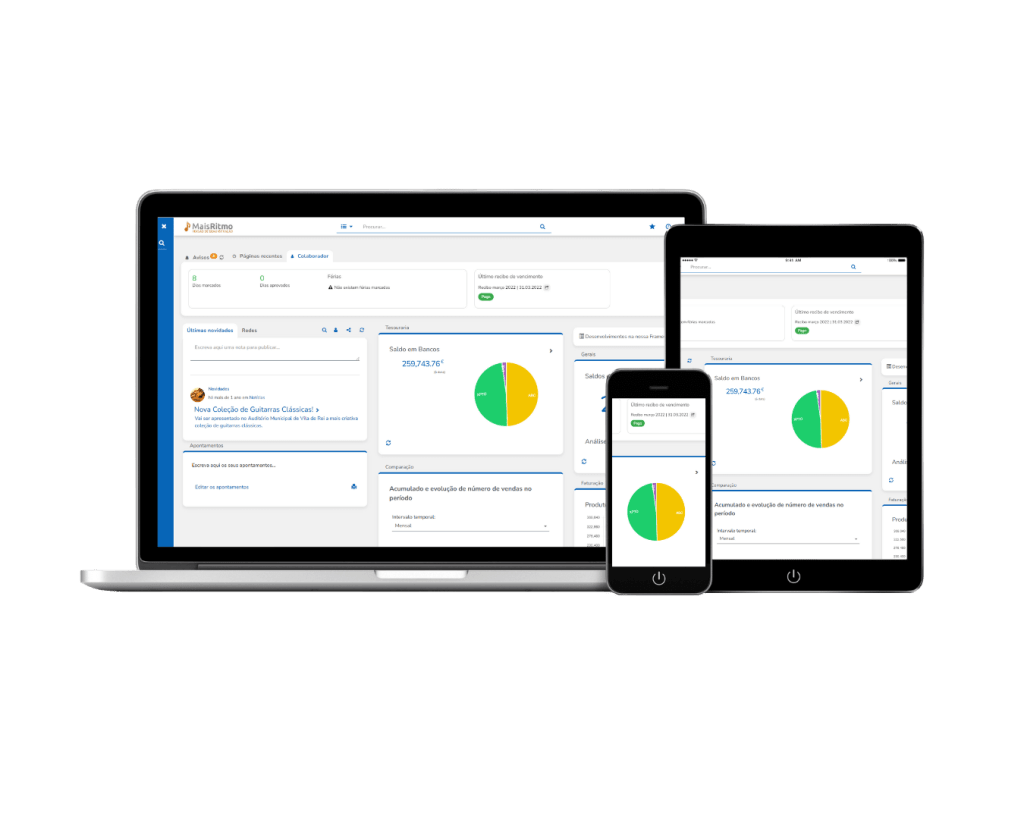With the rapid advancement of Internet of Things (IoT) technology, businesses are increasingly adopting remote IoT management software to enhance efficiency and scalability. These solutions allow organizations to manage connected devices from anywhere, ensuring seamless operations and reducing downtime. If you're searching for the best remote IoT management software, this comprehensive guide will help you make an informed decision.
As more companies transition to smart technologies, the demand for reliable remote IoT management platforms has skyrocketed. These tools not only provide real-time monitoring capabilities but also offer robust security features and analytics to optimize performance. Whether you're managing a small-scale IoT deployment or a large enterprise network, selecting the right software is crucial for success.
This article will explore the top remote IoT management software options available in the market, their features, and how they can benefit your business. By the end of this guide, you'll have a clear understanding of what to look for when choosing the best remote IoT management software tailored to your needs.
Table of Contents
- Introduction to Remote IoT Management Software
- Key Criteria for Selecting Remote IoT Management Software
- Top 10 Best Remote IoT Management Software
- 1. Microsoft Azure IoT Hub
- 2. AWS IoT Core
- 3. IBM Watson IoT Platform
- 4. Google Cloud IoT Core
- 5. Losant IoT Platform
- 6. ThingsBoard
- 7. Kaa IoT Platform
- 8. DevicePilot
- 9. Particle IoT
- 10. Ubidots
- Comparison of Top Remote IoT Management Software
- Steps to Implement Remote IoT Management Software
- Future Trends in Remote IoT Management
- Conclusion and Call to Action
Introduction to Remote IoT Management Software
Remote IoT management software serves as the backbone of modern IoT ecosystems, enabling businesses to monitor, control, and analyze connected devices from anywhere in the world. These platforms provide a centralized interface for managing IoT devices, ensuring secure communication, and delivering actionable insights through advanced analytics.
One of the primary benefits of remote IoT management software is its ability to scale effortlessly. Whether you're managing a few devices or thousands, the right platform can adapt to your growing needs without compromising performance. Additionally, these solutions offer features such as device provisioning, firmware updates, and real-time alerts, making them indispensable for businesses leveraging IoT technology.
According to a report by MarketsandMarkets, the global IoT platform market is expected to reach $22.4 billion by 2026, growing at a CAGR of 25.4%. This growth underscores the increasing importance of remote IoT management software in driving innovation and efficiency across industries.
Key Criteria for Selecting Remote IoT Management Software
When evaluating remote IoT management software, it's essential to consider several key criteria to ensure the chosen solution aligns with your business needs. Below are some factors to keep in mind:
- Scalability: Ensure the software can handle your current and future IoT device count.
- Security: Look for platforms offering robust encryption, authentication, and authorization mechanisms.
- Analytics: Choose software that provides meaningful insights through data visualization and reporting tools.
- Integration: Verify compatibility with existing systems and third-party applications.
- Support: Opt for vendors offering reliable customer support and regular updates.
Top 10 Best Remote IoT Management Software
In this section, we'll delve into the top remote IoT management software options available today, highlighting their unique features and benefits.
1. Microsoft Azure IoT Hub
Microsoft Azure IoT Hub is a leading remote IoT management platform that offers a wide range of features for businesses of all sizes. It provides secure bi-directional communication between IoT devices and the cloud, enabling real-time monitoring and control.
Key features include:
- Device provisioning and management
- Advanced analytics and machine learning capabilities
- Integration with other Azure services
According to a study by Gartner, Microsoft Azure IoT Hub ranks among the top platforms in the Magic Quadrant for IoT Platforms.
2. AWS IoT Core
AWS IoT Core is another prominent player in the remote IoT management software market. It allows businesses to connect billions of devices and process trillions of messages, ensuring reliable and secure communication.
Key features include:
- Device fleet management
- Rule-based message routing
- Integration with AWS services
AWS IoT Core is trusted by numerous Fortune 500 companies, making it a reliable choice for large-scale IoT deployments.
3. IBM Watson IoT Platform
IBM Watson IoT Platform combines IoT management with artificial intelligence to deliver powerful insights and automation capabilities. It enables businesses to unlock the full potential of their IoT data through cognitive computing.
Key features include:
- Real-time data analytics
- Predictive maintenance
- Integration with IBM Cloud services
IBM Watson IoT Platform has been recognized for its innovation and leadership in the IoT space, with numerous case studies showcasing its impact on businesses worldwide.
4. Google Cloud IoT Core
Google Cloud IoT Core is a scalable and secure platform for managing IoT devices. It integrates seamlessly with Google's data analytics and machine learning services, providing a comprehensive solution for IoT deployments.
Key features include:
- Device authentication and authorization
- Real-time data streaming
- Integration with BigQuery and TensorFlow
Google Cloud IoT Core is ideal for businesses seeking a cloud-first approach to IoT management, leveraging the power of Google's ecosystem.
5. Losant IoT Platform
Losant IoT Platform is a user-friendly remote IoT management solution designed for both beginners and experienced developers. It offers a drag-and-drop interface for building workflows and visualizing data.
Key features include:
- Device management and orchestration
- Customizable dashboards
- Integration with third-party services
Losant is particularly well-suited for businesses requiring a low-code or no-code approach to IoT management.
6. ThingsBoard
ThingsBoard is an open-source remote IoT management platform that provides flexibility and customization options. It supports both cloud and on-premise deployments, catering to a wide range of use cases.
Key features include:
- Device telemetry and attribute management
- Rule engine for automating actions
- Customizable dashboards
ThingsBoard's open-source nature allows businesses to tailor the platform to their specific requirements, making it a cost-effective solution.
7. Kaa IoT Platform
Kaa IoT Platform is another open-source remote IoT management software that offers a modular architecture for building custom IoT solutions. It supports various communication protocols and provides robust security features.
Key features include:
- Device management and monitoring
- Real-time analytics and reporting
- Integration with third-party systems
Kaa is ideal for businesses seeking a flexible and scalable IoT management platform.
8. DevicePilot
DevicePilot is a cloud-based remote IoT management platform focused on delivering actionable insights and improving device performance. It simplifies the process of monitoring and managing IoT devices through intuitive dashboards and alerts.
Key features include:
- Device health monitoring
- Real-time alerts and notifications
- Integration with popular IoT platforms
DevicePilot's user-friendly interface makes it accessible for businesses of all sizes.
9. Particle IoT
Particle IoT is a comprehensive remote IoT management platform that simplifies the development and deployment of IoT solutions. It provides tools for device management, firmware updates, and cloud integration.
Key features include:
- Device provisioning and management
- Over-the-air firmware updates
- Integration with cloud services
Particle IoT is particularly well-suited for businesses developing IoT hardware and software solutions.
10. Ubidots
Ubidots is a cloud-based remote IoT management platform that focuses on simplifying data collection and visualization. It enables businesses to build custom IoT applications without requiring extensive coding knowledge.
Key features include:
- Device data collection and visualization
- Customizable dashboards
- Integration with third-party services
Ubidots is an excellent choice for businesses seeking a low-code IoT management solution.
Comparison of Top Remote IoT Management Software
Choosing the best remote IoT management software depends on your specific requirements and budget. Below is a comparison of the top platforms based on key criteria:
| Criteria | Microsoft Azure IoT Hub | AWS IoT Core | IBM Watson IoT Platform | Google Cloud IoT Core |
|---|---|---|---|---|
| Scalability | High | High | High | High |
| Security | Excellent | Excellent | Excellent | Excellent |
| Analytics | Advanced | Advanced | Cognitive | Machine Learning |
Steps to Implement Remote IoT Management Software
Implementing remote IoT management software involves several key steps:
- Define your IoT objectives and requirements.
- Choose the right platform based on your needs.
- Set up the necessary infrastructure and devices.
- Integrate the software with existing systems and applications.
- Test and optimize the solution for performance and security.
Future Trends in Remote IoT Management
The future of remote IoT management is shaped by emerging trends such as edge computing, AI-driven analytics, and 5G connectivity. These technologies will enhance the capabilities of remote IoT management software, enabling even more efficient and intelligent IoT ecosystems.
As businesses continue to adopt IoT solutions, the demand for advanced remote management platforms will only grow. Staying informed about these trends will help you make the most of your IoT investments.
Conclusion and Call to Action
In conclusion, selecting the best remote IoT management software is crucial for maximizing the benefits of your IoT deployment. By considering factors such as scalability, security, analytics, and integration, you can find a solution that meets your business needs.
We encourage you to explore the options discussed in this guide and choose the platform that aligns with your goals. Don't forget to leave a comment sharing your thoughts or questions, and feel free to share this article with others who might find it valuable. For more insights into IoT and related technologies, check out our other articles on the site.


